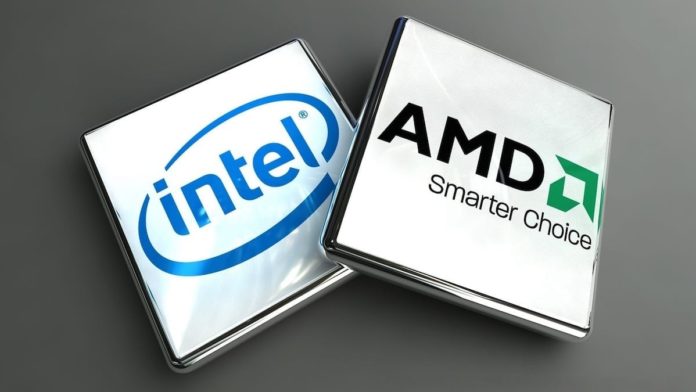Intel’s chief performance strategist, Ryan Shrout has posted a very interesting article on his medium account. He tested the Intel Core i9-9900K at 1080p in four, six and eight-core modes in an attempt to analyze core-scaling for PC games. Based on the results he claims a number of things. Perhaps the most interesting claims are that adding extra cores doesn’t improve performance and “8-cores is the optimal spot for performance scaling in modern PC gaming”. Posting this just before AMD releases its first 16-Core gaming CPU in the Ryzen 9 3950X seems like a sorry attempt to disparage the competition.
“adding core-count just because you can… doesn’t result in better performance.”
Ryan Shrout, Chief Performance Strategeist, Intel
Using an Intel i9-9900K, Shrout tested it in 4, 6 and 8-core configurations, locking it to 4GHz. Among the six games tested, there is a 20-30% performance increase in frames at 1080p. The switch to 8 cores, however, doesn’t show much improvement at all. He also tested the i9–9980XE to similar results. To say that the testing is inconclusive would be an understatement. Coming to a conclusion without even bothering to test the Ryzen 3000 processors is quite an oversight.

Moreover, Intel has been marketing their flagship processors primarily for streaming. So, Shrout’s argument that cores don’t improve performance holds even lesser weight with regards to his own Company’s offerings. Not to mention that with the Ryzen processors being significantly cheaper, they outperform Intel’s offerings in price-to-performance alone.
“For gaming, 8-cores is the optimal spot for performance scaling in modern PC gaming,” says Shrout, “and at 8-cores we get the best frequency scaling out of our Coffee Lake products and 14nm process technology today. And clock speed is what feeds the hungry primary threads of game engines today!”
Ryan Shrout, Chief Performance Strategeist, Intel
Intel’s latest flagship, the 9900KS runs at 5GHz on all cores. As per Shrout’s results, this would mean that the KS grossly outperforms every other performance on the market, right? Tests and benchmarks say otherwise. In fact, there’s barely any difference. It is technically the fastest gaming processor around, that doesn’t really matter in gaming or other tasks. While he does make a valid point about frequency and IPC being important factors in today’s games, the Comet-Lake processors are proof that iterating on the same architecture over a period of 4 years and increase in subsequent clock speeds doesn’t translate to better performance.
With the gaming industry pushing 4K and higher resolutions, the impact of CPU is slowly diminishing. Mostly gaming performance is GPU-intensive. You can opt for a cheap CPU with a decent GPU, and there won’t be a significant difference in most games. Moreover, with the testing being limited to 1080p, there’s barely any conclusions to be made and it’s disappointing to see Intel’s Chief Performance Strategist trying to downplay the competition in such a silly way. Maybe if Intel had been more focused on new technologies, it wouldn’t have to resort to such methods.
Further Reading:



Lol! This Chief performance strategist doesn’t seem to be aware that 2 years ago his company increased count across the board with the 8th gen Core processors since they couldn’t significantly improve performance on each core.
Why they release beyond 4 cores ?
They should stick on 4 cores 8 thread.
A case of sour grapes.!!
‘Testing limited to 1080’ the author shows his lack of grasp on the subject with this statement. 1080 will show the most difference between cpu and not gpu performance. Side note I a bit of a amd fanboy, I own some stock in amd, not intel, just pointing out some flawed logic.
Amd is eating Intel’s lunch and dinner, intel and nvidia have been price gouging for to long. Poor little intel fetting best bu Awesome Micro Devices
I think there can be advantages to more cores but this assumes that the system and what the user is doing can actually use all those cores. As with mobile chips the trend is more cores but at the same time there is a pause in performance in terms of individual clock speeds. If people would look close at specs they will see that boost speeds are sometimes limited to only some of the cores and many times PC makers limit their performance to address heat issues and other problems in thinner and lighter notebooks.